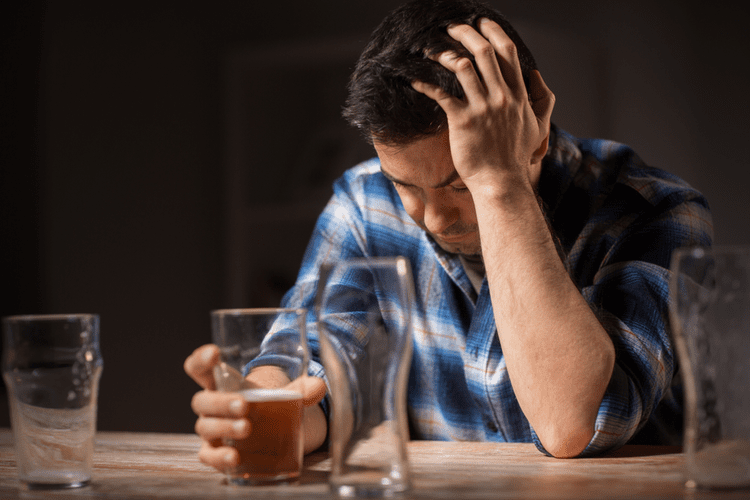In conclusion, it is important to recognize the destructive impact that alcohol can have on relationships. Whether it is the physical and emotional effects on the drinker or the breakdown of communication and trust between partners, alcohol can cause irreparable damage. It is crucial to seek help and support if you or a loved one is struggling with alcohol addiction.Rebuilding relationships after alcohol-related issues requires honesty, communication, and forgiveness. It is important to take responsibility for one’s actions and to seek professional help if needed. There are resources available for those who are struggling, including support groups and therapy.It is also important to address enabling behavior and set boundaries to prevent further damage.
How Alcohol Effects Relationships
- My parents fought constantly, and their arguments often turned violent.
- If alcohol has shifted the way you feel seen, heard, or loved in a relationship, then the damage has already begun.
- In some cases, people with drinking problems are able to maintain their relationships despite the challenges they pose.
The damage alcohol causes isn’t always immediate; it can build over time. As drinking behaviors escalate, so do the arguments, broken promises, and emotional withdrawal. This mirrors findings from research on prairie voles that showed relationship strain when one partner consumed alcohol while the other did not (ScienceDaily study). Yet, despite these challenges, many couples have found healing and stability through professional guidance, open communication, and the right types of therapy. ” Know that most people who are casual drinkers do not ask this question. Common signs include being unable to control your drinking or lacking the ability to stop or reduce your alcohol intake.
Financial Issues
Overall, alcohol has the potential to erode trust, intimacy, and overall relationship satisfaction, ultimately leading to its destruction. The effects of alcohol use disorder (AUD) are far from limited to the person with the drinking problem. Their close loved ones are often directly impacted by the consequences of the addiction, and the damage that AUD leaves behind can make maintaining healthy relationships difficult or impossible. However, with treatment and recovery, there’s hope to rebuild those broken bonds…. Alcohol abuse disorder significantly alters an individual’s personality, and as a result, it can make them unrecognizable from the person they were before they started https://dev-modapkproversion.pantheonsite.io/2021/07/28/abstinence-violation-effect-ave-nina-yashin/ drinking. Individuals who have alcohol use disorder become more and more secretive, often out of fear, shame, or guilt.
Personality Changes
Keeping a distance will also prevent your loved one from influencing you to allow the addiction to continue or crossing boundaries. While shielding your partner from the truth may seem an innocent defense mechanism, it can eventually lead to consistent lies and more and more mistrust in the relationship. Being frequently intoxicated or hungover can prevent the person from participating in activities, fulfilling their responsibilities or spending quality time Sober living house together. Additionally, intoxication affects things like coordination, memory and judgement. You may be more likely to make bad decisions, engage in risky behaviour and even become violent towards your loved ones.
Increased Anger and Aggression

Are there times that you have had to cancel plans because of a severe hangover? I think everyone should remember also that, a relationship is between 2 people, even if it’s a big group. We pick up a lot of these non-verbal signals that people are concerned about our drinking and I think that affects the whole relationship thing. You have to ask yourself how can you give the most to your relationships when you’re drinking, how can you be sociable. Learn more about identifying the signs of an alcoholic spouse, including how to convince an alcoholic to get help, by reading our useful addiction resources. While every person’s response to alcohol is different, your alcohol destroys relationships reaction may make your partner uncomfortable.
What can I do to repair the damage caused by alcohol abuse?

It is very common for alcoholics to feel victimised as this can help them to avoid accountability and create what they tell themselves are valid reasons to drink. Find rehab for yourself or a loved one by speaking with a treatment provider. When someone you love is facing addiction, it’s hard to know where to turn. If you have suspicions that alcohol misuse may be destroying your relationship, consider these signs and if you have general symptoms of alcoholism. Those suffering from alcohol use disorder or drug addiction tend to miss important life events due to their addiction. Participating only in events involving alcohol is noticed by partners and can strain relationships.
- A person can lose interest in sex or even feel an aversion to intimacy.
- Whether you’re seeking help for yourself or a loved one, we’re here to guide you every step of the way.
- Many people self-soothe with alcohol when they feel bad, but in the long run, drinking to cope makes your mood less stable and your emotional state worse.
- Alcohol is a pervasive problem that can have a negative effect on relationships, both intimate and platonic.
- In reality, they’re doing it for themselves while encouraging an unhealthy dynamic.
The Effects of Alcohol on Relationships
It can make it difficult for people to communicate effectively, leading to misunderstandings and hurt feelings. It can also erode trust, as the drinker may become unreliable or dishonest.It’s important to recognize the impact that alcohol can have on relationships and take steps to address any issues that arise. This may involve seeking professional help, setting boundaries, and finding alternative coping mechanisms. By taking action, it’s possible to rebuild relationships and create a healthier, happier future. Limitations include potential restrictions to generalizability (e.g., recruitment from a sample of college students; low partner response rate; relatively low alcohol use). In addition to the relatively low response rate, there may have been a potential bias during sample recruitment (possibly related to the low response rate).
